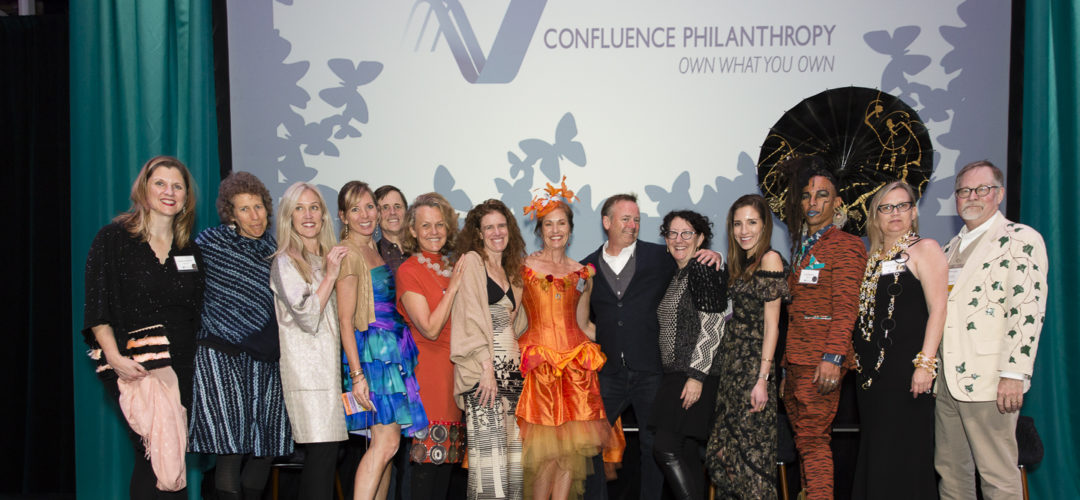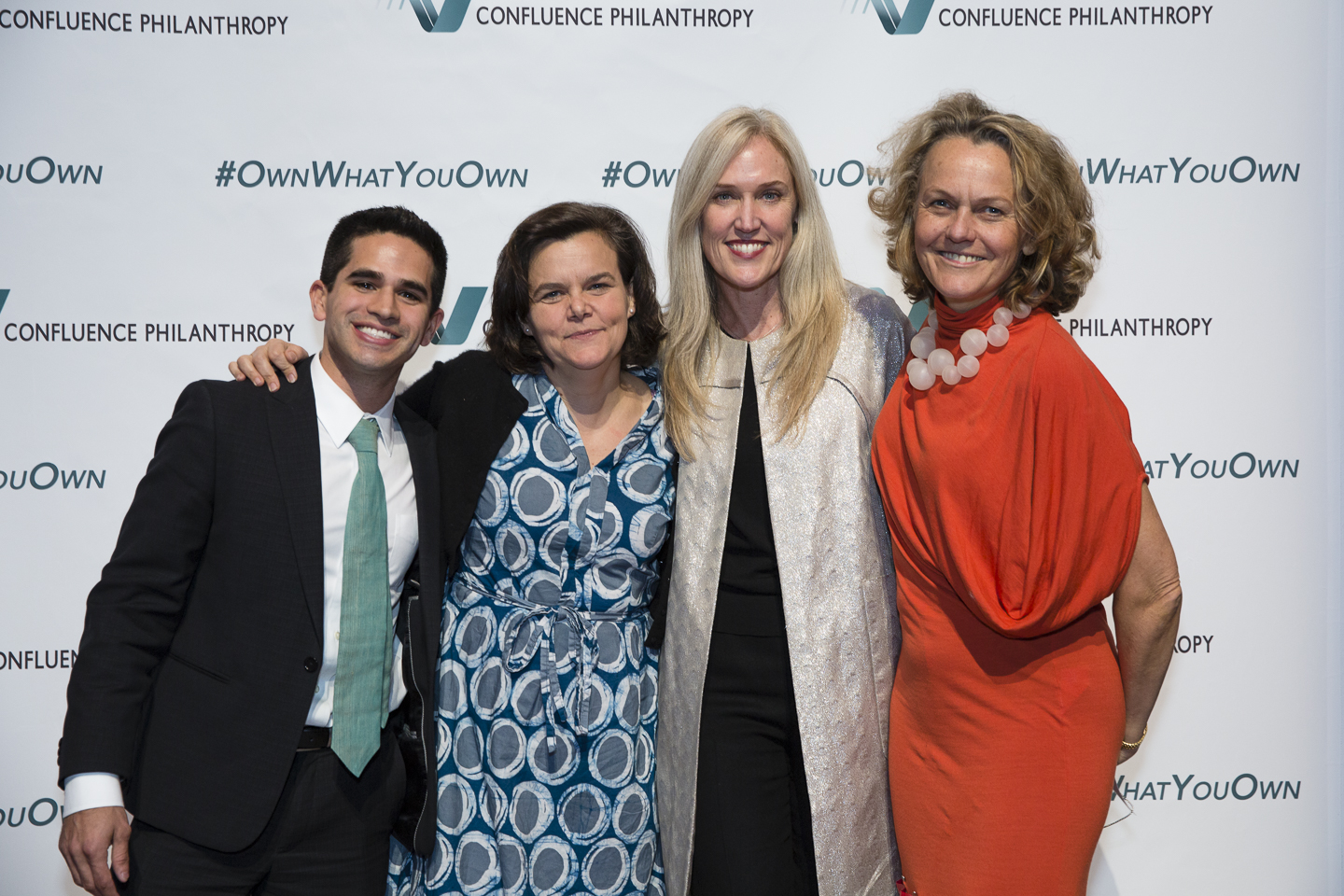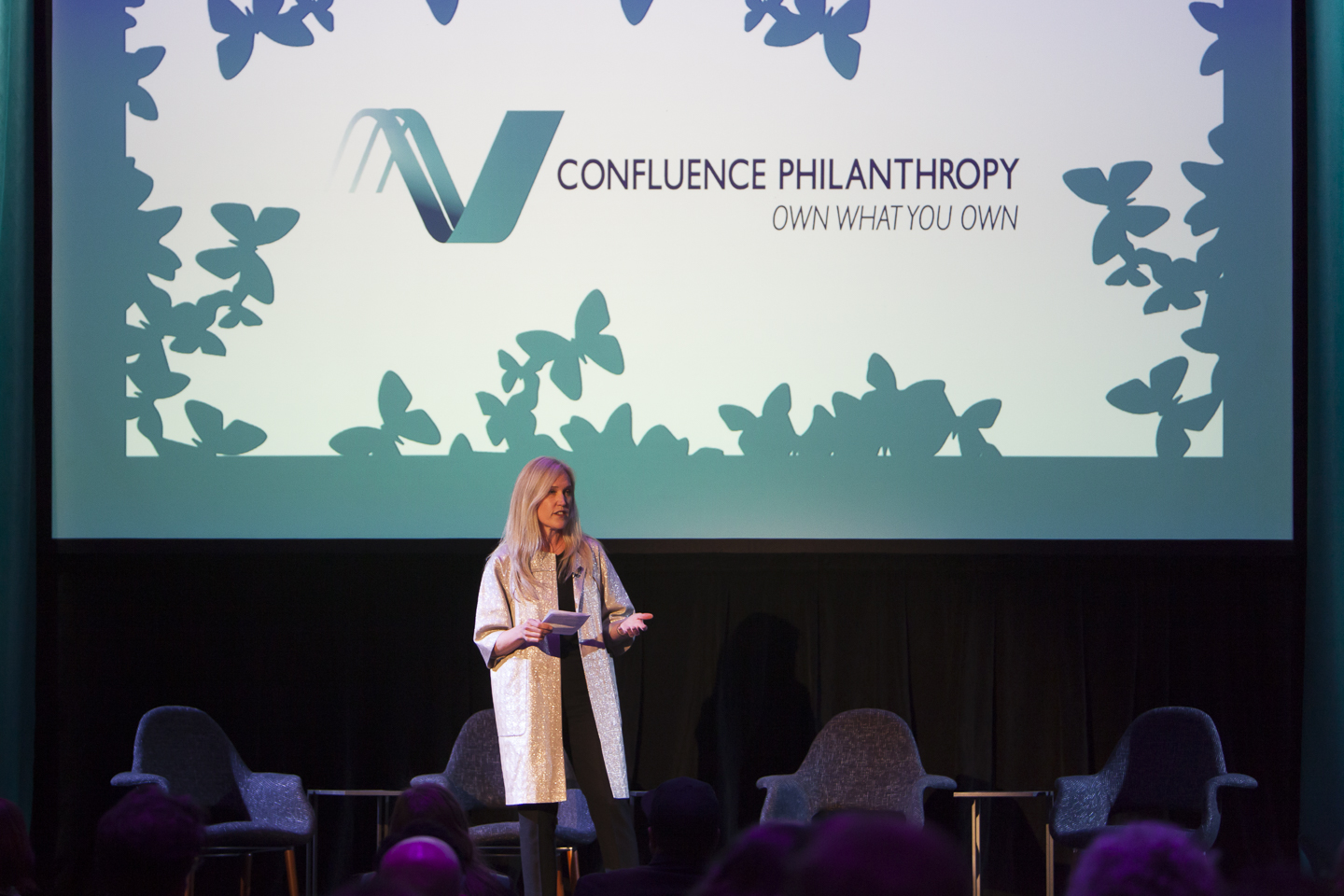“Disrupt the Now” Underscores the Societal Significance of Impact Investing
April 05, 2018 - By
Impressions from Confluence Philanthropy’s 8th Annual Practitioners Gathering
“When power does not want to hear the truth, storytellers and artists hold the powerful to account.” That statement, famously made by Ford Foundation CEO and former Rockefeller Philanthropy Advisors (RPA) board member Darren Walker, could have been emblazoned on the walls at this year’s Confluence Philanthropy Conference. One of the most resonant themes that came out in panel after panel, session after session, was the many ways that investment in art and culture can shape new narratives, create new ways to connect, and forge new pathways to social mobility and political power.
Confluence Philanthropy is a membership organization through which foundations and individual donors learn and share practices, intentions and aspirations in order to more closely align the potential environmental and social impact of their financial portfolios with their programmatic goals and vision. The Confluence Philanthropy community includes funders and impact investors, learners and leaders, and has steadily grown since its inception ten years ago.

This year’s annual conference, held in the San Francisco Bay Area and titled “Disrupt the Now,” featured sessions on the future of high touch and high tech work, as well as site visits to organizations reimaging criminal justice, housing, clean energy, and education. MacArthur Genius Award recipient (2014) Ai-jen Poo, Director of the National Domestic Workers Alliance and Co-director of the Caring Across Generations campaign, spoke of forging pathways to sustainable, quality jobs for the caregiving workforce. Marina Gorbis, Executive Director of the Institute for the Future, spoke of the impact of artificial intelligence on the future workforce and the emerging Universal Basic Assets framework, which identifies a fundamental set of resources to which every person is entitled. Investment innovations were showcased every other hour, and the event also included the launch of a new racial equity initiative.
Confluence Philanthropy is known for great programming, intentional community building, and throwing a great party. This year’s celebration took place at one of our country’s most respected contemporary art centers, Yerba Buena Center for the Arts, where the tag line reads, “We generate culture that moves people.” As a former YBCA board member (I served for seven years), introducing comedian W. Kamau Bell to the YBCA stage was particularly moving because I consider him a masterful storyteller, re-scripting what’s possible. An ACLU celebrity ambassador on racial justice, author and podcast/radio/television host, Bell uses humor, analysis and curiosity to get at the heart of hard issues.

For the evening discussion, I had the opportunity to craft a panel that would build on Bell’s momentum. The extraordinary leaders who accepted the challenge all share the overarching goal of strengthening the arts and culture fabric of the Bay area, though they view the world through diverse lenses. Thus after Bell’s stand-up routine, he was joined on stage by author Jeff Chang, famous for many books including Can’t Stop, Won’t Stop, A History of the Hip-Hop Generation and We Gon’ Be Alright: Notes on Race and Resegregation; YBCA CEO Deborah Cullinan; and Steve Oliver, who is not only a philanthropist, but also an art collector and real estate developer of both high-end and affordable housing. True to the theme of the event, this incredible panel discussed the catalytic power of art and culture to build community across political, social and sector divides, and the impact financial and philanthropic investors can have on this critical work.
In another example of art and culture shaping new narratives by disrupting the norm, the evening celebration also featured a “sustainable fashion show” in which partygoers impressed judges with upcycled muumuus, repurposed gowns and prom dresses, cork shoes, locally sourced designs, and indigenous handcrafted styles.
The consistent growth of Confluence Philanthropy over the past several years has shown that impact investing has reached a significant penetration point. We at RPA understand the importance of this movement, and in fact over a decade ago produced two impact investing monographs that many still use and quote from today. RPA also has a history of incubating and helping build capacity in the impact sector, including serving as the fiscal sponsor that launched both Confluence Philanthropy and the Global Impact Investing Network (GIIN) before they respectively became independent organizations. Indeed, GIIN founder Luther Ragin currently serves on RPA’s board.
To help those just getting started in impact investing, RPA recently launched two new impact investing guides (Impact Investing: An Introduction and Impact Investing: Strategy and Action) that include strategic frameworks for aligning philanthropic and financial impact goals as well as recent case studies. These guides received a warm reception from Confluence Philanthropy participants, who were grateful to have a roadmap for charting and implementing what they had absorbed over the heady conference days.
Culture change begets political change. As impact investors and philanthropists, we are in the business of social change, movement building and evolving new leadership models that create a more just, sustainable, and beautiful world. How we show up—as investors, philanthropists, citizens, artists and activists—matters, and impact investing is a key path to accelerating that change for the benefit of all.

Berit Ashla leads RPA’s West Coast advisory work, manages client engagements and works with a range of individual, family and corporate donors from her San Francisco base. A frequent contributor to national and regional philanthropic conferences and events, she brings a wealth of experience in grantmaking, foundation governance, education, social justice, arts and sustainability. You can reach Berit by emailing [email protected].
Back to News